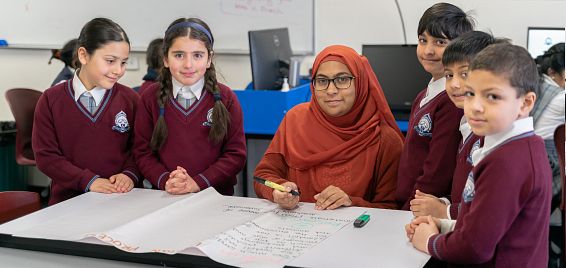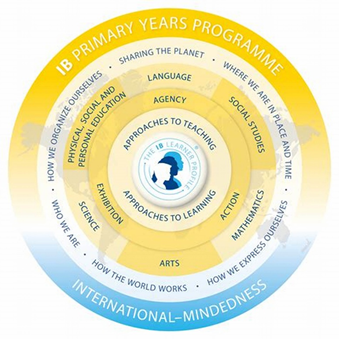Faculties
Our faculties form the basis for the deployment of our exceptional educational services. Learn more about the various faculties that the AIA is comprised of below.
Arts
Art The Visual Arts at AIA consists of the following Dimensions:
- Creating and making which focuses ideas, skills, techniques processes and presentations
- Exploring and responding which focuses on context, interpreting and responding, criticism and aesthetics.
During a Unit of Inquiry, all children engage in a continuous experience in the different Arts disciplines. All students have a single period every week of art lessons.
English
English is a continuing focus in the Schools Strategic Plan at the Australian International Academy where a vital and exciting program is in action. We recognise that active and effective participation in Australian society depends on the ability to speak, listen, read, view and write with confidence, purpose and enjoyment in a wide range of texts.
In English students are actively involved in reading, viewing, comparing and talking. They learn how language functions and how it both reflects and shapes social attitudes, assists students to gain a better understanding of themselves, their culture and the contemporary world.
At the Australian International Academy a dedicated literacy block in the mornings for students in the Early Years, enables students to establish firm foundation skills in reading, writing and speaking and listening.
A full time Literacy Coordinator assists both students and teachers in the development of essential skills.
EARLY YEARS
The purpose of English in the Early Years P-3 is to teach students to use spoken language effectively, expand vocabularies, teach reading and writing skills and strategies, fostering critical perspectives on texts and introducing students to literature. See Intervention for further information.
MIDDLE YEARS
Students in the Middle Years 4 8,5consolidate and build on basic knowledge and skills. They are becoming independent readers and writers who can undertake structured activities with some autonomy. They gain:
- The ability to speak, listen, read view and write with enjoyment, purpose and confidence in a wide range of contexts.
- Knowledge of how language varies depending on context, purpose audience and content and the capacity to apply this knowledge.
- Understanding of the linguistic patterns used to construct different texts.
- A capacity to relate texts to aspects of contemporary society and personal experience.
- The ability to discuss and analyse texts.
- The capacity to develop reasoned arguments.
During this process students are monitored and assessed against the expectations of the Victorian Essential Learning Standards.
Arabic / Turkish
Aims of the Additional Language program at the Australian International Academy
- To provide instruction in Additional Language to develop broad communication skills of listening speaking reading and writing
- To develop cognitive skills and literacy skills in Additional Language.
- To promote intercultural awareness and understanding of different cultures.
The Additional Language (Arabic/Turkish) program aims to develop an awareness and appreciation of another culture through dramatisation, story-telling, dance, songs and cultural activities.
Additional Language lessons follow closely the PYP and VELS, with focus on improving the skills of listening, speaking, reading and writing through an inquiry approach.
Students from Prep to Year 5 work through progression points of VELS to reach level 4 by the end of Year 5.
Maths
Our Mathematics programmes aim to develop:
- Mathematical skills and knowledge that will allow students to deal confidently and competently with daily life.
- Knowledge and skills that are necessary for future employment, further study and interest.
- Knowledge of number facts and technical skills.
- Conceptual understanding of Mathematical areas.
- The ability to communicate in clear and precise mathematical language.
- The skills needed to transfer their knowledge to solve real and non-routine problems.
- The ability to conduct investigations using mathematics.
- Logic and reason.
- Measuring, estimating skills which includes using calculators and computers.




